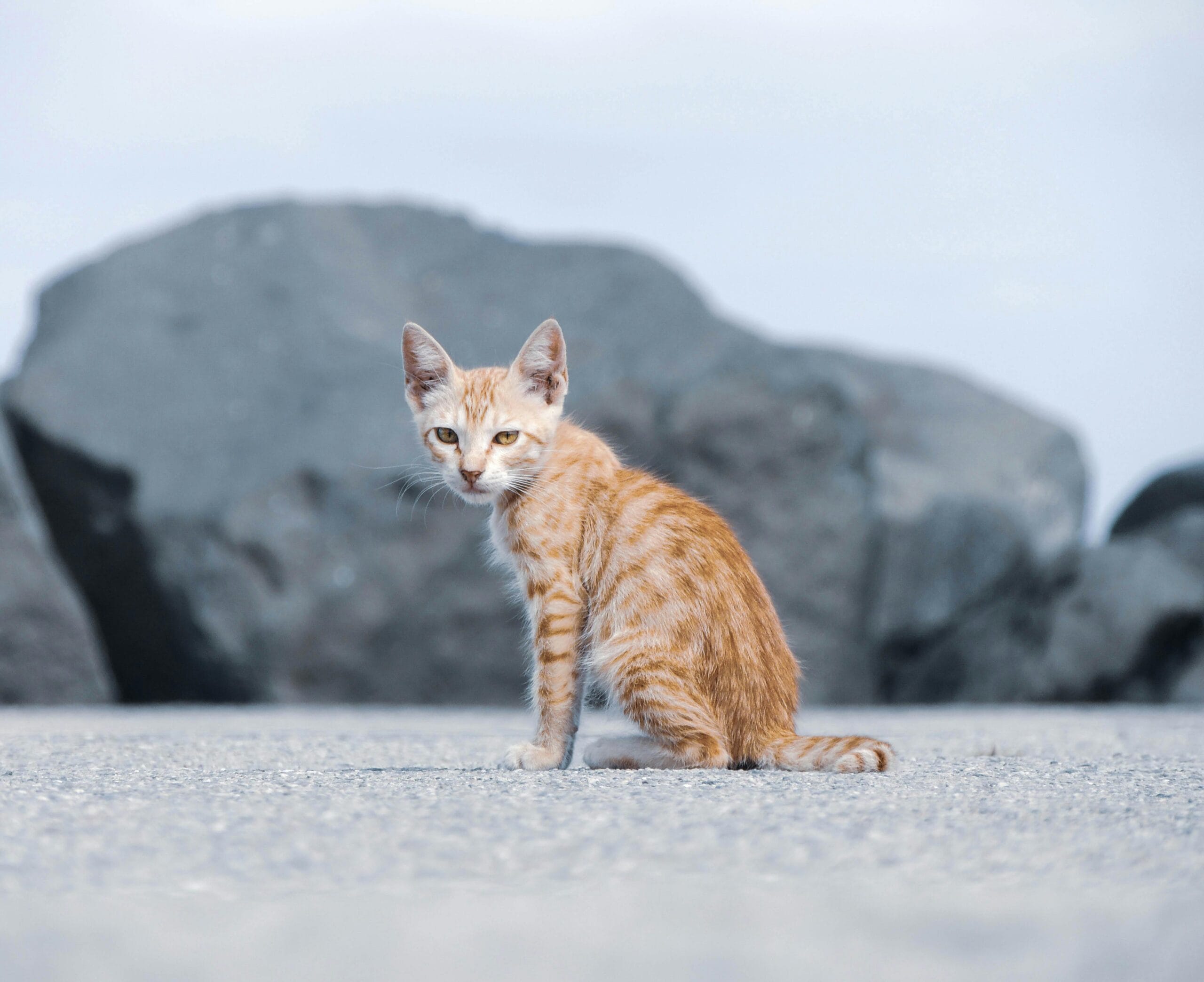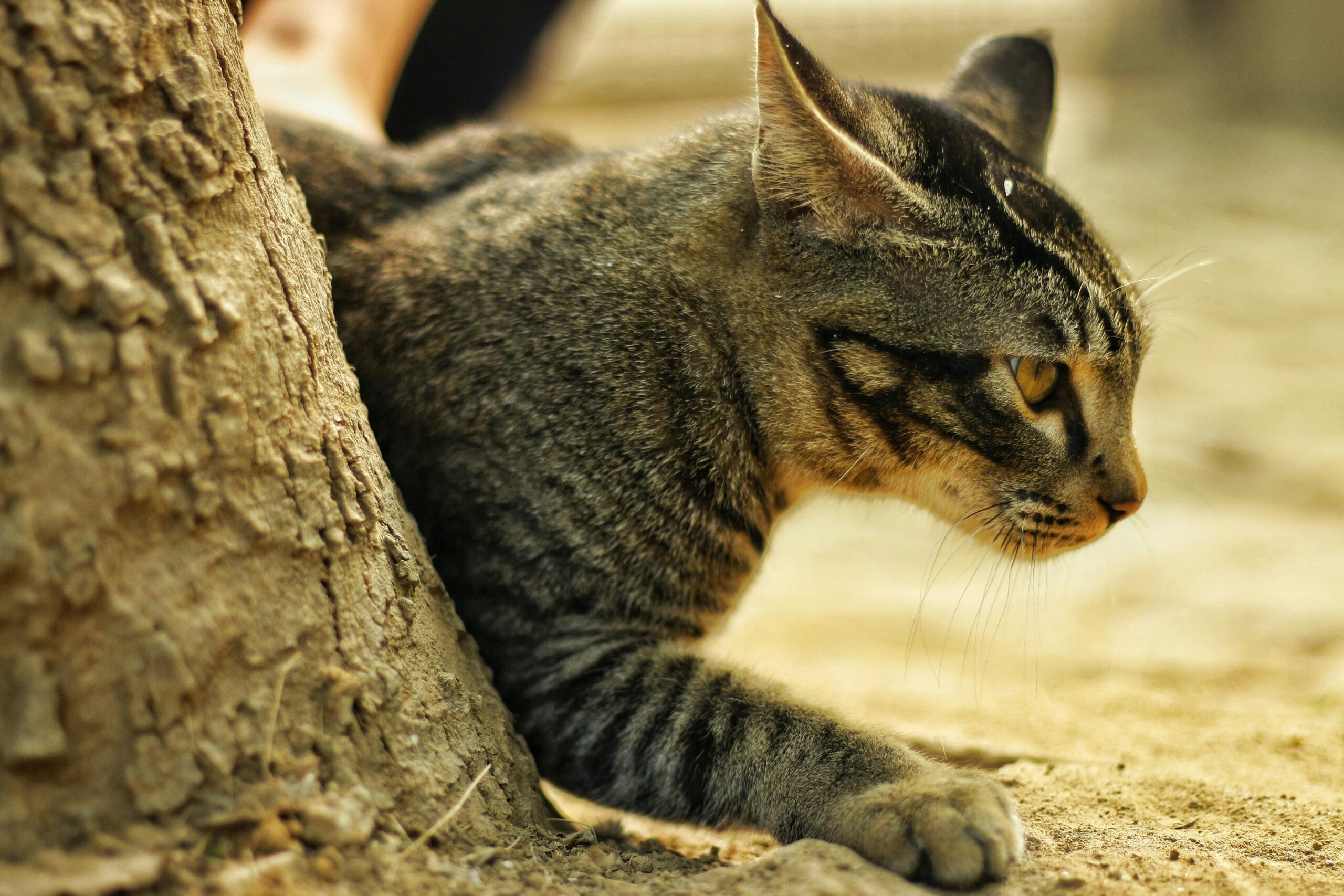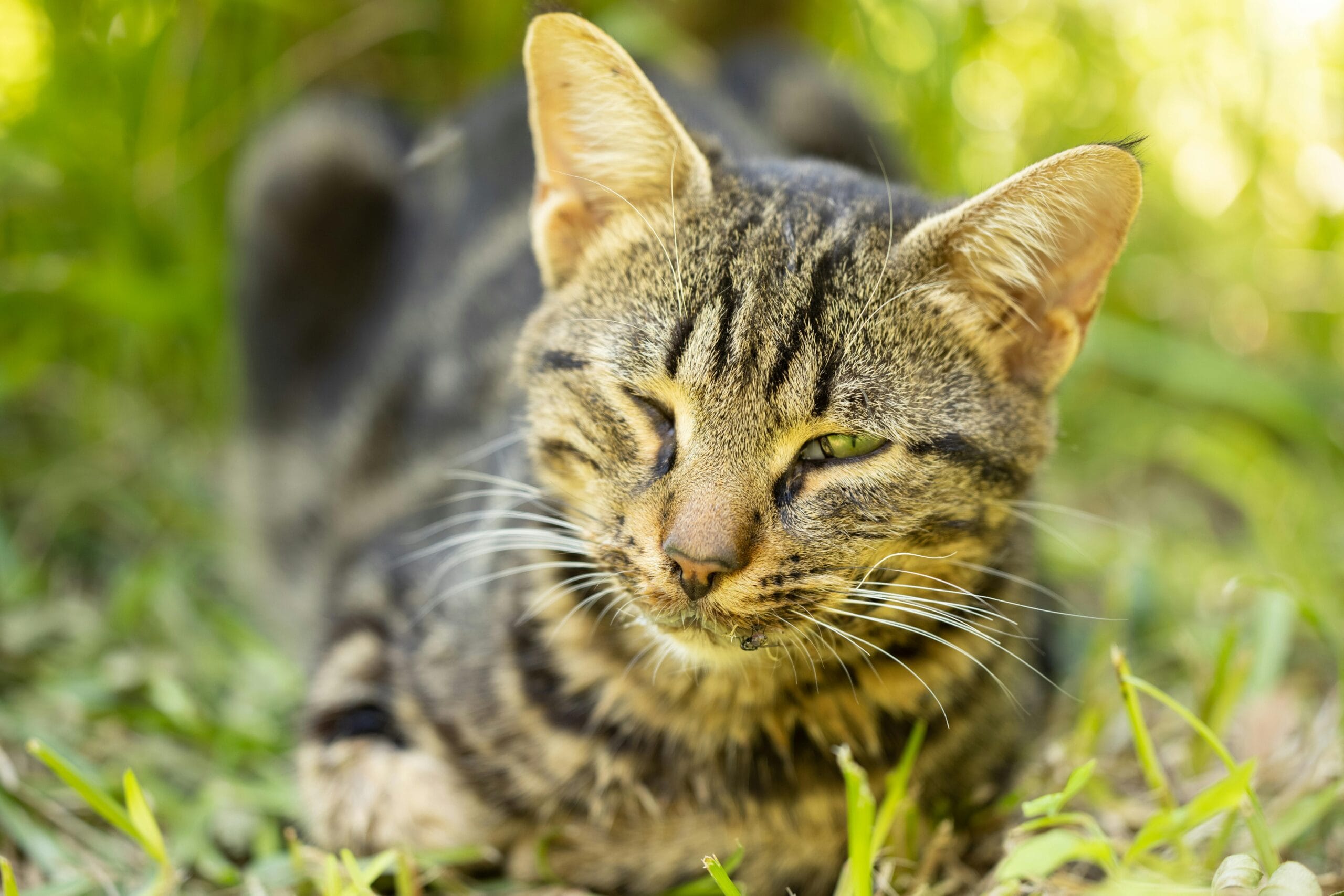Can Cats Eat Whipped Cream ?

Can Cats Eat Whipped Cream? Is whipped cream safe for cats? Find out if cats eating whipped cream is okay. Discover the risks and benefits in this essential guide for cat owners! Learn now!
Can Cats Eat Whipped Cream? A Comprehensive Guide
The irresistible fluffy texture of whipped cream often sparks a question in many pet owners’ minds: Can cats eat whipped cream? The short answer is complicated; it depends. While a tiny lick might not cause immediate harm, feeding your cat whipped cream regularly or in large quantities can lead to various health issues. This comprehensive guide will delve into the details, exploring the risks and benefits (if any!), and ultimately helping you determine if whipped cream should ever grace your feline friend’s palate.
Understanding the Dangers: Why Whipped Cream is Risky for Cats
Is whipped cream safe for cats? The answer is generally no. Several factors make whipped cream a potentially dangerous treat for your cat:
High Fat Content
Whipped cream is incredibly high in fat, especially saturated fat. Cats, unlike humans, have a limited capacity to metabolize such high levels of fat. Ingesting excessive amounts can lead to pancreatitis, a severe and potentially life-threatening inflammation of the pancreas. Pancreatitis can cause vomiting, diarrhea, lethargy, and abdominal pain. In severe cases, it requires hospitalization and intensive care. The risk of pancreatitis increases significantly with repeated exposure to high-fat foods like whipped cream.
Lactose Intolerance
Most cats are lactose intolerant. This means their bodies lack the enzyme lactase, necessary to digest lactose, the sugar found in milk and dairy products, including whipped cream. Consuming even small amounts of whipped cream can lead to digestive upset, manifested as diarrhea, gas, and vomiting. These symptoms can be uncomfortable for your cat and can lead to dehydration if severe.
Added Sugars
Many commercially produced whipped creams contain added sugars, artificial sweeteners, and other additives. These are not only unnecessary for your cat but can also contribute to obesity, diabetes, and other health problems. Excess sugar intake can lead to dental problems, including tooth decay and gum disease. Your cat’s health is best served by a diet devoid of added sugars.
Potential for Choking
While less common, whipped cream’s texture can pose a choking hazard, especially for kittens or cats with smaller mouths. The cream can stick to the throat, making it difficult for them to breathe. Always supervise your cat closely if they happen to have access to whipped cream, and ensure they are consuming only tiny amounts (if at all).
The Occasional Lick: Is it Really That Bad?
While we strongly advise against giving your cat whipped cream, a tiny, accidental lick probably won’t cause immediate harm. However, even seemingly innocuous amounts can accumulate and contribute to the problems mentioned above over time. Consider the following factors:
- The amount consumed: A single lick is far less concerning than several spoonfuls.
- Your cat’s overall health: A healthy cat with a robust digestive system is more likely to tolerate a small amount of whipped cream than a cat with pre-existing health conditions.
- The type of whipped cream: Unsweetened, dairy-free whipped cream options might be slightly less harmful, but they still contain fat and potentially other ingredients unsuitable for cats. Always check the ingredient list before considering anything even remotely close to a treat.
If you suspect your cat has consumed a significant quantity of whipped cream, contact your veterinarian immediately. Early intervention is crucial in managing potential complications.
Better Alternatives to Whipped Cream as Treats
If you’re looking for ways to spoil your feline companion, there are many healthier and safer alternatives to whipped cream. Consider these options:
- Cat-specific treats: Pet stores offer a wide range of treats formulated specifically for cats’ nutritional needs. These treats are often low in fat and sugar, and they come in a variety of flavors and textures.
- Cooked chicken or tuna (in moderation): Small pieces of plain, cooked chicken or tuna can serve as occasional treats. Avoid adding any seasonings or oils.
- Catnip: Catnip is a safe and enjoyable way to provide mental stimulation and entertainment for your cat.
Always prioritize your cat’s health and well-being. Before introducing any new food, even seemingly harmless treats, consult with your veterinarian. They can advise you on appropriate dietary choices and help you create a balanced nutritional plan for your furry friend.
Can Cats Eat Whipped Cream? The Bottom Line
To reiterate, cats eating whipped cream, even in small amounts, is generally not recommended. The high fat content, lactose intolerance issues, and potential for added sugars outweigh any possible benefits. While a tiny accidental lick is unlikely to cause immediate harm, making whipped cream a regular part of your cat’s diet can significantly jeopardize their health. Always prioritize their well-being by choosing safe and appropriate cat treats. For more information on feline nutrition, refer to the excellent resources provided by the American Veterinary Medical Association.
Addressing Common Myths about Cats and Whipped Cream
Many myths surround the interaction between cats and whipped cream. Let’s debunk some of these common misconceptions:
- Myth: “A little whipped cream won’t hurt.” While a tiny amount might not cause immediate problems, regular consumption can lead to serious health consequences.
- Myth: “My cat loves it, so it must be okay.” Cats’ preferences don’t always align with their nutritional needs. Just because your cat enjoys whipped cream doesn’t mean it’s good for them.
- Myth: “It’s just a treat, it won’t affect their health long-term.” Even occasional treats, if unhealthy, can contribute to long-term health problems like obesity and diabetes.
Always err on the side of caution. Choose healthy and appropriate treats for your cat, and consult your veterinarian with any questions or concerns regarding your cat’s diet. For more in-depth understanding of feline dietary needs, refer to the resources provided by the ASPCA.
Conclusion: Prioritize Your Cat’s Health
The question, “Can cats eat whipped cream?” has a clear answer: It’s best to avoid it. While a small accidental amount might not cause immediate issues, the risks associated with high fat content, lactose intolerance, and potential for added sugars far outweigh any perceived benefits. Opt for healthier and safer treats to show your feline friend your love and care. Always consult your veterinarian for personalized advice regarding your cat’s diet and overall health.
For comprehensive information on pet nutrition and health, I highly recommend consulting your veterinarian or exploring resources from reputable organizations like the Vets Now. They provide valuable insights and guidance to ensure the well-being of your beloved pets.
Share Your Experiences!
Have you ever witnessed your cat’s reaction to whipped cream? Did they show any signs of discomfort or illness? Share your stories and experiences in the comments below. Let’s build a community to help educate fellow cat owners on the importance of safe and healthy feline nutrition! Use keywords like Can Cats Eat Whipped Cream, cats eating whipped cream, or is whipped cream safe for cats in your comments to help others find relevant information.

Can Cats Eat Whipped Cream? 10 Frequently Asked Questions
Here are 10 frequently asked questions about cats and whipped cream, along with concise and helpful answers:
1. Can cats eat whipped cream?
No, cats should not eat whipped cream. While a tiny lick might not cause immediate harm, whipped cream is generally unsafe for cats. It’s high in fat and sugar, neither of which is beneficial to a cat’s digestive system.
2. Is whipped cream safe for cats?
No, whipped cream is not safe for cats. The high fat content can lead to pancreatitis (inflammation of the pancreas), diarrhea, vomiting, and obesity. The sugar content contributes to dental problems and can also upset their stomach. Considering the potential risks, it’s best to avoid giving your cat whipped cream entirely.
3. What happens if my cat eats whipped cream?
The effects of cats eating whipped cream depend on the amount consumed. Small amounts might cause mild digestive upset. Larger quantities can lead to more serious issues like vomiting, diarrhea, pancreatitis, and obesity. If your cat consumes a significant amount, contact your veterinarian immediately.
4. Is a little bit of whipped cream harmful to cats?
Even a small amount of whipped cream is not ideal for your cat. While a tiny lick might not cause immediate problems, regular consumption, even in small quantities, can contribute to long-term health issues. It’s best to avoid it completely.
5. Can whipped cream be fatal for cats?
While unlikely in small amounts, cats eating whipped cream in large quantities can be fatal, particularly if it leads to pancreatitis. The high fat content overwhelms their system and can cause organ damage.
6. My cat stole some whipped cream, should I be worried?
If your cat only ate a tiny amount of whipped cream, you might observe them closely for any signs of digestive upset like vomiting or diarrhea. If you’re concerned, or if they consumed a significant amount, contact your veterinarian immediately.
7. What are the symptoms of a cat having eaten too much whipped cream?
Symptoms of cats eating whipped cream in excess can include vomiting, diarrhea, lethargy, abdominal pain, and possibly pancreatitis (which requires urgent veterinary attention).
8. Are there any whipped cream alternatives I can safely give my cat?
No, there are no safe substitutes for whipped cream. Cats have different dietary needs than humans and should only consume food specifically formulated for felines.
9. Why is whipped cream bad for cats?
Whipped cream is bad for cats due to its high fat and sugar content. This can lead to obesity, pancreatitis, digestive upset, and dental problems. It offers no nutritional value for them.
10. Is dairy in general bad for cats?
Many cats have lactose intolerance, meaning they can’t properly digest lactose, a sugar found in dairy products like whipped cream. This can further contribute to digestive upset. While some cats might tolerate small amounts, it’s best to avoid dairy altogether to prevent potential problems. If you’re concerned about cats eating whipped cream or other dairy products, consult your veterinarian.

Can Cats Eat Whipped Cream? Practical Tips and Health Considerations
Whipped cream’s appeal to humans is undeniable, but is it safe for our feline friends? The short answer is: generally no. While a tiny lick might not cause immediate harm, whipped cream presents several health risks for cats that outweigh any potential enjoyment.
Health Risks of Whipped Cream for Cats
Dairy Sensitivity: Many cats are lactose intolerant. Whipped cream, being a dairy product, can lead to digestive upset, including vomiting, diarrhea, and gas. The severity depends on the cat’s individual sensitivity and the amount consumed.
High Fat Content: Whipped cream is high in fat, which can contribute to pancreatitis (inflammation of the pancreas), a serious and potentially life-threatening condition in cats. Pancreatitis can cause severe abdominal pain, vomiting, and lethargy.
Added Sugars: Many commercially available whipped creams contain added sugars, which are not good for cats. Excessive sugar intake can contribute to obesity and diabetes.
Artificial Sweeteners (Xylitol): Avoid whipped cream containing xylitol, an artificial sweetener extremely toxic to cats. Even small amounts can cause a life-threatening drop in blood sugar and liver failure.
Practical Tips for Cat Owners
Avoid Giving Whipped Cream: The safest approach is to completely avoid giving your cat whipped cream. There are no health benefits, and the risks are significant.
Choose Cat-Friendly Treats: Offer your cat commercially available cat treats formulated specifically for their nutritional needs. These are designed to be safe and delicious.
Supervise Interactions with Food: Keep whipped cream and other human foods out of your cat’s reach to prevent accidental ingestion.
Consult Your Veterinarian: If your cat ingests whipped cream, even a small amount, or shows any signs of digestive upset after eating something unusual, contact your veterinarian immediately.
SEO Keywords:
cat whipped cream, cats eat whipped cream, is whipped cream bad for cats, whipped cream toxicity cats, lactose intolerance cats, pancreatitis in cats, cat treats, cat food, cat health, pet health